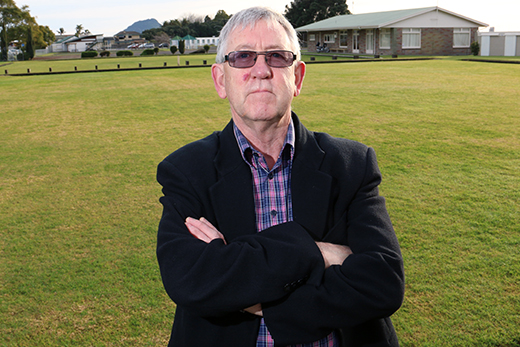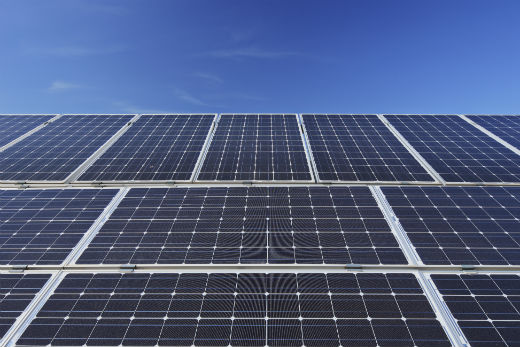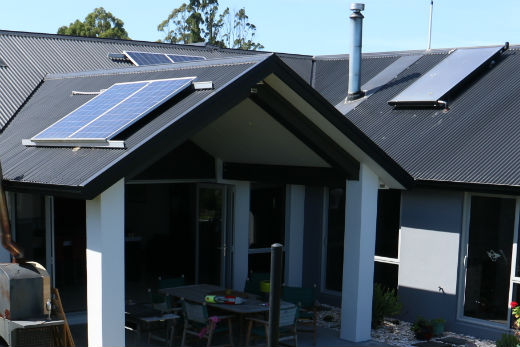A decision by Hawke's Bay lines company Unison to raise prices for houses with solar panels is being described as "completely understandable".
Trustpower community services manager Graeme Purches says the real problem is a lot of the opposition is coming from people who don't understand how electricity charges work.
Hawke's Bay lines company unison has raised prices for houses with solar panels. Trustpower community services manager Graeme Purches says the decision is completely understandable. Photo: File
"The Electricity Authority pre-empted this months ago by saying network companies needed to consider how they would recover the cost of having lines connected to people's houses when people only use them for peak demand,” says Graeme.
Unison senior manager Nathan Strong says his firm is acting now to protect its income and make sure the customer gets a good idea of the real cost of providing an electricity network.
"Currently it costs us about $900 a year to serve a typical residential customer," says Nathan.
"Under our old pricing approach, someone putting a solar panel on a roof would reduce their contribution by $300, and that $300 would have to be made up by someone who does not have solar panels on their roof."
Electricity charging also comes into it, says Graeme. Part of the fixed charge is a service charge for the retailer.
'But the unit rate is the same. A unit rate is made up of a mix of the unit costs and the network costs. About 40 percent of it is the line charge,” he explains.
'What's historically happened is that the line companies have all based their charges – rather than have all the line charges fixed charges, people who use the biggest proportion of the capacity of the transformer should pay more than people who use less.”
'So we will have a small fixed charge for the lines to be connected to your place and a charge that reflects the wear and tear of the gear for what you actually use, and that's included in the unit rate.
'Every line company around the country is the same, every line company is looking at doing the same thing.”
Many sellers of solar photo voltaic systems over the last 12 months have been using the ability to sell rooftop power back to the national grid as a sales point.

Trustpower community services manager Graeme Purches. Photo: File
'Put in 6kw and you will pay for it in next to no time,” says Graeme. 'And those guys knew that the prices Contact and Meridian were paying – in Meridian's case they were basically refunding the unit rate which included a line charge.
'Meridian was paying the line charge on behalf of the customer to the line company and then they were refunding it to the customer who had solar. So that's why Contact and Meridian when they reached the point where they had a few thousand customers with solar PV, they suddenly reached a point where - ‘Wow this is costing us a bloody fortune – and it's only going to get worse.”
They changed their buy back rate, but it's still more than its worth in the middle of the day during the daytime slump from about 10am to 3-4pm.
That's the cheapest time of the day to buy electricity. Trustpower is buying back rooftop power at 7-8 cents a unit, which is what electrical power can be bought for on the wholesale market.
'On the wholesale market you can contract to buy stuff you know is going to be there. But with solar you don't. If it's a really shitty day it's not there. It's unreliable in terms of buying an output that you are going to be able to sell to other consumers.”
Rooftop power is going to be connected to the grid for a while yet. Battery technologies are improving but still not self-sufficient.
On Truspower's analysis the only network that stacked up for solar power without batteries was Marlborough and it was for about 20 per cent of consumers who could use the power that they were generating from the solar PV as it was generated.
'So In other words they had to be either home during the day or have really up to date appliances where they could programme the start up at 10-11am and run till 2 -3 pm,” says Graeme. 'Everyone else it doesn't stack up.
'There's an outfit promoting solar PV with or without batteries, and the deal is you don't buy the solar PV. They install it and you pay them a fee per month and you get power off it.
'And they are saying the amount of money that you will save on the power bill will be greater than what you pay them in the fee. And you will end up saving money.
'Based on the analyses we've done. That doesn't stack up and someone is going to go bust or change their prices or break their contract, or something.
'It's a developing area, it will get better. The network companies have somehow got to recover the costs, and the people with solar panels on the roof in 95 per cent of the cases still have to be connected to the grid, otherwise they can't watch Coronation Street on Friday night.”




4 comments
Nothing
Posted on 06-04-2016 07:16 | By Capt_Kaveman
But a scam. loosing money yeah right loosing profit margins more like it. nz getting ripped off anyhow n trustpower being the worst, govt needs to stamp this corruption out
Just
Posted on 06-04-2016 07:23 | By Capt_Kaveman
To add at the $900 cost, what a load of tripe, NZ has the highest cost of power compared to what it costs to make it which is??????? next to nothing, N.B a city in asia of just over one million relies on 100% coal for power and when converted to $NZ was about 5% cheaper now go figure
Translation please
Posted on 06-04-2016 07:39 | By peecee09
What a pile of gobbledegook could someone translate into the language of the common consumer
@ peecee09
Posted on 06-04-2016 12:15 | By Crash test dummies
They don't want solar power feed into the National Power Grid, they want to be paid to have a line to the house regardless. all about maintaining profits, nothing else so as the likes of Purchas can retain a huge salary for no apparent good reason. Bye-bye solar energy ...
Leave a Comment
You must be logged in to make a comment.